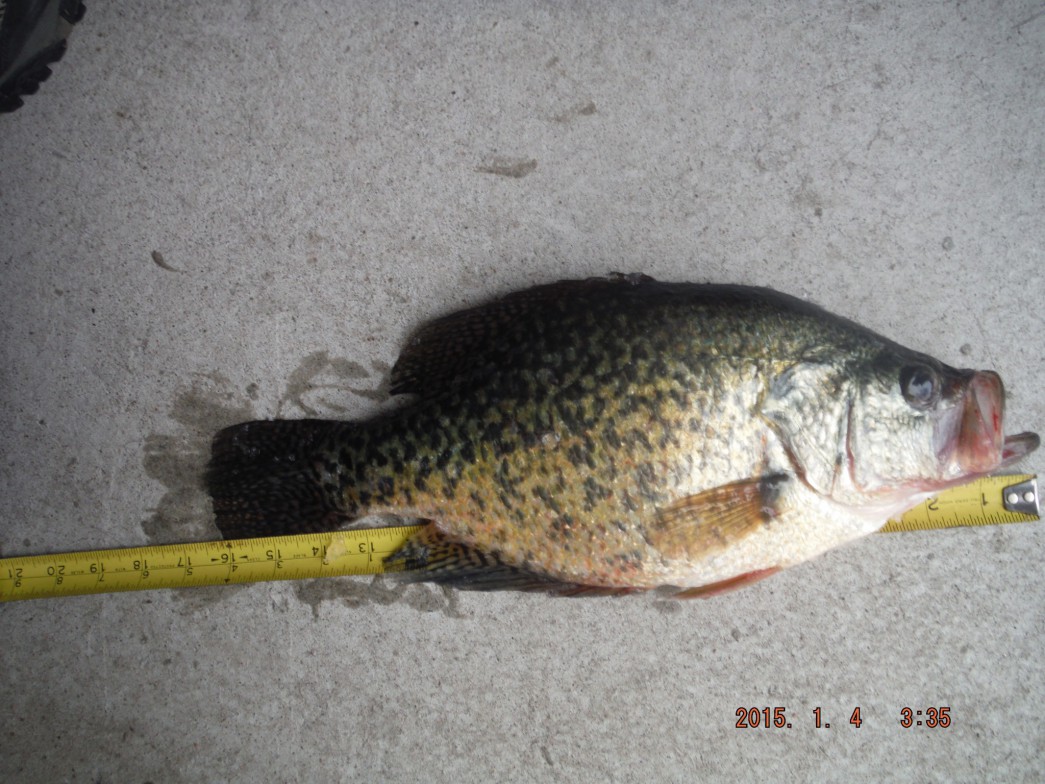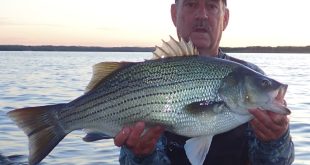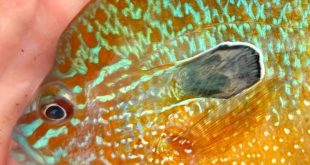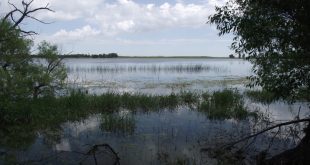It has been a few years since we had any state record fish that have been caught through the ice. We had a couple of fish caught & released through the ice last winter that were state record class ( Big Fish! , Big Fish! Its Happened Again! ), but none in recent years that have been certified as state records. I have one that was caught through the ice this winter, and it is a bit of an unusual fish that I will have to explain to you.
Back on January 2, Diane Weir of Gibbon caught a 2 pound 7 ounce crappie from the Interstate 80 lake located at the Kearney interchange (i.e. Kea Lake). Diane’s fish was 16 inches long and was caught on a Mud Bug .
Now a 2 1/2-pound crappie is a really nice crappie, but not state record class unless it was a triploid crappie. What is a “triploid” crappie? Well let me tell a little story. . . . A few years back Nebraska state fish hatcheries produced some hybrid, white X black crappies; the eggs of those fish were treated after fertilization so that they retained an extra set of chromosomes and thus were triploid fish.
Fisheries managers have experimented with triploid fish over the years because those fish are functionally sterile and that can offer management advantages. First of all, the reproduction and recruitment of sterile fish can be completely controlled–the only fish present are those that are stocked. Secondly, theoretically, sterile fish could grow faster and larger because they devote no energy to the production of eggs or sperm.
In Nebraska we experimented with the hybrid, triploid crappies in five bodies of water, Baright Pond at Mahoney State Park, East Gothenburg Interstate Lake, South Morrill Pit, Brady Interstate Lake, and Kea Lake. By far, Kea Lake received more of those fish than any other body of water. Stockings of the triploid crappie occurred in 2008, 2011, and 2012.
We phased out the stocking of triploid crappies because those fish did not offer any advantages over “regular” black or white crappies unless those waters were going to be managed with special harvest regulations. Why let anglers harvest triploid crappies the same as they would any other crappies especially with the extra effort required to produce those fish in hatcheries?
We have not recognized a state record for the triploid crappies until now and going forward we will recognize state records for triploid crappies ONLY for fish that are verified by fisheries biologists as being the triploids and that have been caught from one of those waters where those fish were stocked. I do not anticipate a lot of state record activity for triploid crappies, but we now have a mark established and I suppose if other anglers want to try to break that record they are welcome to it.
It looks like we will soon be fishing open-water throughout Nebraska. Before you kick-off your open-water season 2015, take a minute or two to review the state record rules in the 2015 Fishing Guide. You can see a complete list of our state record fish HERE. You never know what you might catch!
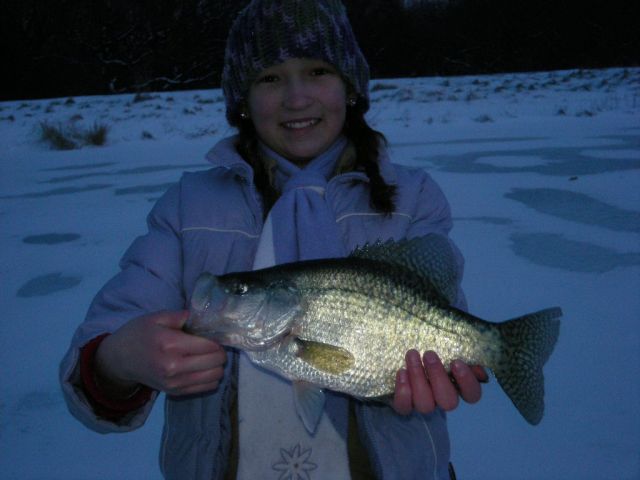
 Nebraskaland Magazine
Nebraskaland Magazine
